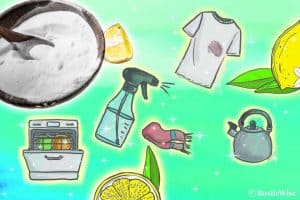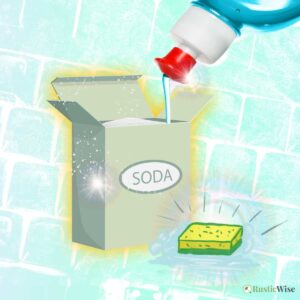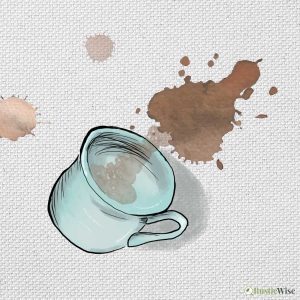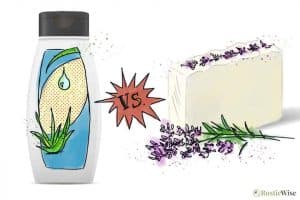Do Bath Bombs Expire? (Hint: You’ll Want To Use Them Soon!)

If you recently stumbled upon an old bath bomb in your bathroom cupboard, you might wonder, do bath bombs expire? Yes, most bath bombs have a shelf life of 6 to 12 months. If you stored it properly in a cool, dry place and there are no signs of discoloration or mold, use at your own discretion. It’s not recommended using bath bombs older than one or two years.
Most bath bombs, whether homemade or store-bought, contain natural ingredients without synthetic preservatives. This means that the life of bath bombs is finite. All the more reason to find time to draw up a warm bubble bath!
Before you use up your old bath fizzies, read on to learn more about what exactly happens with old bath bombs, some potential hazards when using one, plus how to store these babies properly!
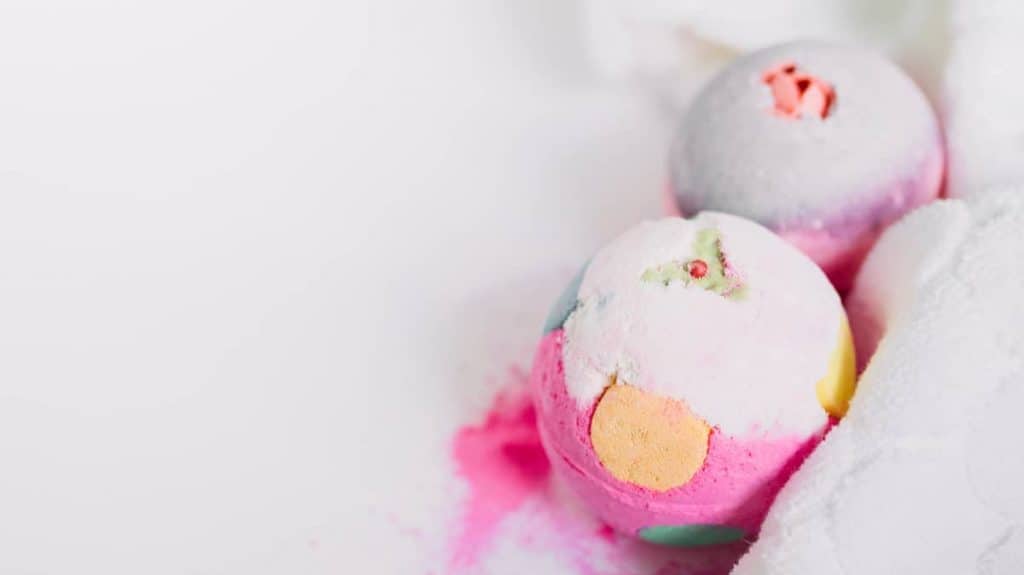
What makes bath bombs fizz?
The “fizz” in BBs boils down to science. It’s a simple chemical reaction between a base (baking soda), and an acid (citric acid). When baking soda (aka sodium bicarbonate) and citric acid come in contact with warm water, they create that fun bubbling and fizzing reaction we love and expect.¹
When a bath bomb hits the water, a positive hydrogen ion from citric acid combines with a negatively charged ion from baking soda. This produces carbon dioxide gas, which makes tiny bubbles and fizz in the bath water.
What happens with old bath bombs? They simply don’t fizz anymore. They might be duds that sink to the bottom of the tub and dissolve.
A breakdown of bath bomb ingredients
Let’s take a closer look at common ingredients in bath bombs and their individual shelf lives.
- Baking soda: A key component of the fizzing acid-base reaction. Baking soda is a natural and mild abrasive that also works to neutralize odors. According to the U.S. Department of Agriculture, an unopened box of baking soda lasts up to 18 months at room temperature. Once opened, it has a shelf life of 6 months.²
- Citric acid: The other half of the acid-base component. Citric acid has mild cleansing properties and typically has a shelf life of 3 years.
- Cornstarch: Cornstarch works to slow down the chemical reaction between sodium bicarbonate and citric acid. Rather than fizzing for mere seconds, cornstarch extends the party for several minutes.¹ Some people prefer to use arrowroot powder in place of cornstarch, but both serve the same purpose. If properly stored away from moisture, cornstarch has a long shelf life and may last indefinitely.
- Epsom salt (optional): Bath salts, or Epsom salt, have exfoliating properties and work to soften skin. The shelf life of Epsom salt is also indefinite with proper storage.
- Vegetable oils: Every type of vegetable oil has a different shelf life. When veggie oils expire, they turn rancid. Some commonly used plant oils found in bath bombs are coconut oil (shelf life of approx. 1–2 years), olive oil (shelf life of approx. 2 years), and sunflower or safflower oil (shelf life of approx. 1 year). Some oils like sweet almond oil have a shelf life of less than 1 year.
- Essential oils or fragrance oils: EOs are not the same as FOs. Essential oils derive from the leaves, roots, stems, or flowers of natural botanicals, which have therapeutic benefits. The shelf life of EOs varies widely from 1 year to several years. Fragrance oils are synthetic aromas derived from a lab. FOs have a shelf life of up to 2 years.
- Fresh ingredients (optional): Some homemade bath bombs include fresh natural ingredients such as flower petals (rose or lavender), orange peels, or milk. If you have a bath bomb with fresh ingredients, this can drastically shorten the life of that bath bomb to less than 6 months. Look out for mold growth!
Tip: If you’re making DIY bath bombs and want to ensure they have longevity, select vegetable oils with a longer shelf life. Skip any fresh ingredients that may cause bath bomb mold.
Do bath bombs expire, really?
Now that we’ve examined each of the ingredients along with their individual shelf lives, you’re probably wondering are old bath bombs safe?
While a bath bomb is highly unlikely to spoil, say like a carton of fresh eggs, the individual ingredients degrade over time.
The vegetable oils may turn rancid over time, which would create an unpleasant odor. When used on skin, it may cause irritation.
Essential oils, too, go through a process of oxidation which degrades the integrity and quality with time. The constituents found in EOs combine with oxygen, which creates a negative chemical reaction.⁴
Sometimes harmful substances known as oxides or peroxides form (such as limonene-2-hydroperoxide). This is mildly toxic and may cause skin irritation.⁴
This is the main reason you should halt before using up an old bath bomb: the vegetable or essential oils may cause adverse skin reactions.
How long do bath bombs last?
For best results and to ensure all ingredients remain fresh, aim to use bath bomb within 6 to 12 months. A fresh bath fizzy will help you get the most out of bath time with its nourishing oils and fragrances.
My take: Personally, I have used bath bombs older than two years and have experienced no skin problems. That said, please do so at your own risk. If you have sensitive skin, broken or irritated skin, it’s probably safer to toss any expired bath bombs.
Bath bombs that contain natural ingredients such dried berries and flower petals may spoil more quickly if stored in a humid area.

Credit: Yay Images
Signs your bath bomb has expired
If you can’t quite remember how old your bath bombs are, here are some telltale signs that they’re past the Use-by date.
- Little to no fragrance, or an “off” smell: Usually the scents fade first. Fragrance oils tend to last longer than essential oils, so the longevity of a bath bomb’s scent really depends on the FOs or EOs used. Or, sometimes an expired bath bomb develops an unpleasant or “off” odor.
- Physical appearance: An older bath bomb may look visibly different. The spherical shape looks more porous, more crumbly. The once vibrant colors may look faded. Watch for signs of mold.
If anything looks or smells bad, or if it’s long past the expiry date, play it safe and toss it.
Tip: To test a bath bomb, break off a small chunk. Make yourself a DIY foot soak with the bath bomb to see if your skin reacts to it before immersing your whole body in the bathtub. Fizzy bath bombs are a sign they still have some life left and should be safe to use.
Can bath bombs grow mold?
Yes, while not very common, some bath bombs that contain fresh ingredients (petals, citrus peels, milk, or oatmeal) may grow mold. This is especially true if the bath bomb has been stored in a humid environment.
Store your bath bombs in an airtight container in a dry room for longevity.
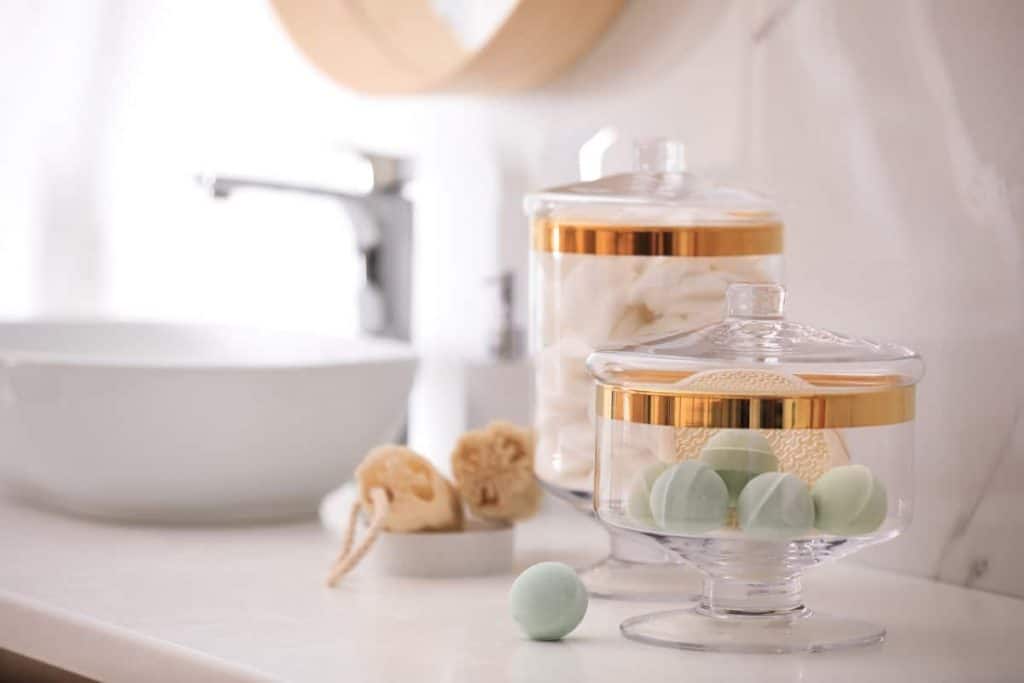
Credit: 123RF.com
How to properly store bath bombs to extend shelf life
While it’s most convenient to keep bath fizzies in the bathroom, this is often the worst place to store them. High humidity and warm temperatures can rapidly shorten the shelf life of your fragrant bath bomb. Here are a few best tips on extending the shelf life of BBs.
- Keep it airtight: To keep excess moisture and oxygen out, store your bath fizzies in an airtight container such as glass jars, plastic containers with tight-fitting lids, or Ziploc bags with excess air squeezed out.
- Group similar scents together: If you have a collection of different types of bath bombs, try to store similar fragrances together to preserve the aromas, and avoid intermingling. For example, keep all your citrus fragrances together, and all your floral scents in another container.
- Keep it cool and dry: The best place to store your collection of bath bombs is away from direct sunlight or other sources of heat. A cupboard or drawer (away from the humidity of the bathroom) is a good place. Humidity control is also key to keeping those BB fizzy for as long as possible.
The takeaway: do bath bombs expire?
Natural bath bombs are a great way to relax and relieve stress (which most of us need, nowadays). But, do bath bombs expire? Yes, most bath bombs have a shelf life of 6 to 12 months. If you happen to have a few bath fizzies that are past their best-by date, use at your own discretion. If stored properly and there are no signs of mold or unusual odors, they should be safe to use.
👉Check out our post on How To Use a Bath Bomb in the Shower + 8 Alternative Uses.
Related questions
Can you use bath bombs more than once?
While most bath bombs are intended for onetime use, you can extend the number of uses by breaking a large bomb into smaller chunks. Store the unused bath bomb in plastic wrap, a Ziploc bag, or an airtight container.
Do you need to shower after a using a bath bomb?
This really depends on the type of bath bomb you used. Some glitter bombs may require a quick rinse in the shower to remove the sparkles. With others, the moisturizing oils are intended to soak into the skin, and you may feel just fine without a shower afterwards.
Are bath bombs good for people with sensitive skin?
If you have sensitive skin, it’s best to avoid bath bombs with artificial colors or fragrances which can irritate skin. The main ingredients in bath fizzies are baking soda, citric acid, and cornstarch. If you react strongly to any of these ingredients, you might need to skip the bath bomb.
Try breaking off a small chunk of a bath bomb to do a quick 24 hour patch test. To do this, wet the small piece, and rub onto a small patch of skin. Wait and see for any adverse reactions.
Do Epsom salts expire?
While Epsom salts may have a best-before date for optimum freshness, do not not truly expire. Epsom salts may last indefinitely if stored properly and can still be used if the best-before date has passed.
Made of magnesium sulphate, older salts may clump together, but are still safe to use.
Store your bath salts in an airtight container away from direct heat or light.
What’s the difference between Epsom salts and bath salts?
The main difference is that Epsom salts are solely composed of salts of magnesium sulphate, whereas bath salts contain other fragrances or essential oils.
While bath salts may list Epsom salt as an ingredient, they typically contain a blend of fragrances, essential oils, coloring, or other botanical additives.
Do Lush bath bombs expire?
A popular bath product, Lush bath bombs do have a best-by date. According to the FAQ section on the Lush website, all “naked” products (including bath fizzies and shower bombs) are good for up to 14 months from the date it’s made.
Since unwrapped Lush products don’t have a sticker with the manufactured date, just use your judgment about whether to use an old bath bomb, or toss it.
👉Find more wellbeing topics on nourishing your body and soul with natural food, herbs, plants, and household products.
New to making soap? 🧼❓
👉We have a fantastic overview on the whole soapmaking process here: read our Timeless Guide To Soapmaking.
If you would like to see our soapmaking posts organized by topic type, see our Soapmaking Collection.
Would you like more timeless tips via email?
Fun tips to help you live an independent, self-sustaining lifestyle. Opt-out at any time.


References
- Rowan, Karen (22 December 2018). “The Science of Bath Bombs (and How to Make Them),” Live Science. Accessed December 2022.
- U.S. Department of Agriculture, What is the shelf life of baking soda?, https://ask.usda.gov/s/article/What-is-the-shelf-life-of-baking-soda. Accessed December 2022.
- Handcrafted Soap & Cosmetic Guild, The Shelf Life of Oils, https://www.soapguild.org/how-to/ingredients/shelf-life-of-oils.php. Accessed December 2022.
- Tisserand Institute, Is my bottle of essential oil oxidized or no longer good to use?, https://tisserandinstitute.org/learn-more/oxidized/. Accessed December 2022.

Author: Theresa Tesolin
Theresa is co-founder of RusticWise. She helps people unleash their inner DIY spirit by encouraging them to get dirty and make or grow something from scratch.



